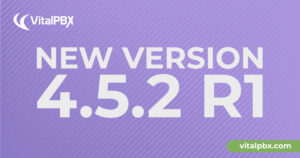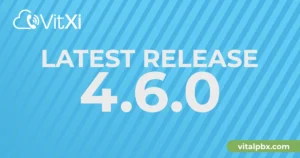Slash Your Operational Costs: How Call Centers Can Save Money with Hosted PBX in 2025
Call center managers and business owners are constantly balancing on a financial tightrope. The pressure to deliver exceptional customer service is immense, but so is the need to control skyrocketing operational costs. From agent salaries to technology infrastructure, every line item is under scrutiny. If you’re still relying on a traditional, on-premise PBX system, you might be sitting on one of your biggest, yet most overlooked, money pits. This is where we’ll explore how call centers can save money with hosted PBX’s, transforming a major capital expense into a predictable and affordable operational one.
As we move through 2025, the shift to cloud-based solutions is no longer a trend; it’s a fundamental business strategy for survival and growth. A Hosted Private Branch Exchange (PBX) system, also known as a Cloud PBX, offers a powerful, flexible, and remarkably cost-effective alternative to the clunky, expensive hardware of the past. In this guide, we’ll break down the exact ways a hosted PBX can drastically cut your call center’s expenses, boost your ROI, and future-proof your communications infrastructure.
The Financial Drain of Traditional On-Premise PBX Systems
Before we can appreciate the savings of a hosted solution, it’s crucial to understand the true, often hidden, costs of a traditional on-premise PBX. These systems represent a significant capital expenditure (CapEx) model, which is becoming increasingly unsustainable for agile businesses.
The Upfront Capital Tsunami
The most obvious cost is the initial purchase. A traditional PBX requires you to buy physical hardware: servers, phones, gateways, switches, and wiring. For a medium-sized call center, this initial investment can easily run into tens of thousands of dollars before a single call is even made. This large upfront cost ties up capital that could be invested in other growth areas like marketing or agent training.
The Never-Ending Maintenance and Staffing Costs
The spending doesn’t stop after installation. On-premise hardware needs a controlled environment (a server room with cooling), regular maintenance, and a dedicated IT team with specialized telecommunications knowledge to manage it. These operational expenses (OpEx) include:
- IT Staff Salaries: You need experts on-site to troubleshoot issues, manage updates, and handle system changes.
- Maintenance Contracts: Often, you’re locked into expensive support contracts with the vendor to ensure you get timely help when the system inevitably fails.
- Repairs and Replacements: Hardware degrades. When a server fails or a card burns out, the replacement costs are entirely on you.
The High Price of Scaling (and Downsizing)
What happens when your call center needs to grow? With an on-premise system, scaling up means buying more hardware, more licenses, and potentially a more powerful central server. This process is slow, expensive, and disruptive. Conversely, if you need to downsize during a slow season, you’re stuck with expensive, underutilized equipment gathering dust. There’s no flexibility.
The Direct Cost Savings: How Hosted PBX Slashes Your Budget
Now, let’s explore the immediate and tangible financial benefits of switching to a hosted PBX. This model flips the script, moving your communications from a burdensome CapEx model to a lean, predictable OpEx model.
1. Eliminate Massive Upfront Hardware Costs
The single most significant saving comes from eliminating the need for a massive initial investment. With a hosted PBX, the core infrastructure—the “brains” of the phone system—resides in a secure, professionally managed data center owned by the provider. You don’t buy servers or complex switching equipment. Your only hardware costs are the IP phones for your agents, and in many cases, you can even use software-based “softphones” on existing computers, further reducing costs. This frees up enormous amounts of capital for your business.
2. Drastically Reduce Maintenance and IT Overhead
Since the provider manages the core system, you no longer need a dedicated on-site team to maintain PBX hardware. All updates, security patches, and system maintenance are handled by the provider and included in your monthly subscription. This allows you to:
- Reallocate IT resources to more strategic, revenue-generating projects.
- Eliminate costly vendor maintenance contracts.
- Reduce energy consumption from running on-site servers and cooling systems.
For an in-depth look at the components of a modern phone system, you can learn more about what a PBX system is and how it works.
3. Benefit from Predictable, All-Inclusive Monthly Billing
Hosted PBX solutions operate on a subscription-as-a-service (SaaS) model. You typically pay a flat per-user, per-month fee. This predictable cost makes budgeting incredibly simple and transparent. Most plans bundle a wealth of features that would be expensive add-ons in a traditional system, such as:
- Advanced IVR (Interactive Voice Response)
- Call Queues and ACD (Automatic Call Distribution)
- Voicemail-to-Email
- Detailed Call Reporting and Analytics
- Call Recording
4. Achieve Effortless and Affordable Scalability
A hosted PBX gives your call center unparalleled agility. Need to add 20 agents for a seasonal rush? You can do it in minutes through a simple web portal. Need to scale back down? Just adjust your user count for the next billing cycle. You only ever pay for what you use. This “pay-as-you-go” scalability prevents you from over-investing in capacity you don’t need, a common and costly problem with on-premise systems.
Beyond the Bill: Indirect Savings and Boosting Call Center ROI
The financial benefits of a hosted PBX extend far beyond direct cost reductions. The advanced features and flexibility inherent in these systems create efficiencies that translate into significant indirect savings and a higher return on investment (ROI).
Enhanced Agent Productivity and Efficiency
Happy, efficient agents are the backbone of a profitable call center. Hosted PBX systems are packed with tools that empower your team to perform at their best.
- CRM Integration: Integrating your PBX with your Customer Relationship Management (CRM) software is a game-changer. When a call comes in, the agent’s screen can automatically populate with the customer’s entire history. This saves time on every call, reduces agent frustration, and leads to faster, more personalized service. Discover the benefits of integrating your CRM with your PBX to see how it can revolutionize your workflow.
- Unified Communications (UC): Modern hosted solutions bring voice, video conferencing, and instant messaging into a single platform. This streamlines internal communication, reducing the time agents spend trying to track down a supervisor or colleague for help.
- Advanced Analytics: Detailed reporting provides managers with insights into call volume, agent performance, wait times, and call resolution rates. By identifying bottlenecks and coaching opportunities, you can continuously optimize operations, which directly impacts the bottom line.
Dramatically Reduced Downtime
According to a study by Gartner, the average cost of IT downtime can be thousands of dollars per minute. Hosted PBX providers use redundant, geographically distributed data centers with failover capabilities, guaranteeing uptimes of 99.999% in many cases. This level of reliability is prohibitively expensive to replicate with an on-premise system, and it saves you from the massive revenue loss and customer frustration caused by system outages.
Enabling a Cost-Effective Remote and Hybrid Workforce
The post-pandemic world has embraced remote work, and call centers are no exception. A hosted PBX is location-agnostic. An agent can plug in their IP phone or log into a softphone from anywhere with an internet connection and have full access to the call center’s communication system. This allows you to:
- Reduce or eliminate office real estate costs.
- Hire the best talent from anywhere in the world, not just your local area.
- Improve employee satisfaction and retention by offering flexible work arrangements.
Frequently Asked Questions (FAQ)
We’ve covered a lot of ground, but you might still have some specific questions. Let’s address the most common queries about the financial sense of a hosted PBX.
Q1: Is a hosted PBX really cheaper than an on-premise system in the long run?
For the vast majority of businesses, yes. While a very large enterprise with a huge, dedicated IT team might find long-term cost parity, most call centers will see significant savings. When you factor in the total cost of ownership (TCO)—including initial purchase, maintenance, staffing, upgrades, and energy costs—the subscription model of a hosted PBX is almost always more economical.
Q2: What features of a hosted PBX help save the most money?
The features that drive the most savings are scalability, reduced IT overhead, and productivity enhancers like CRM integration. The ability to scale on demand prevents overspending on unused capacity, while removing maintenance duties frees up expensive IT resources. Finally, features that shorten call times and improve first-call resolution, like CRM pop-ups and advanced call routing, directly reduce labor costs per interaction. Many of these are top call center features that come standard with a quality hosted PBX.
Q3: Can I keep my existing business phone numbers?
Absolutely. The process is called “porting,” and it’s a standard procedure regulated by the FCC. Your new hosted PBX provider will work with your old provider to seamlessly transfer your existing phone numbers, ensuring there is no disruption to your business or your customers.
Q4: Are there any hidden costs with a hosted PBX?
Reputable providers are transparent with their pricing. The primary cost is the per-user monthly fee. You should clarify costs for international calling, additional phone numbers (DIDs), and any one-time setup fees. However, compared to the many hidden costs of an on-premise system (like emergency repairs or server upgrades), the hosted model is far more predictable and transparent.
Conclusion: Make the Smart Financial Move for Your Call Center
In 2025, running a competitive and profitable call center means leveraging smart technology that maximizes efficiency while minimizing costs. A traditional on-premise PBX is a relic of a bygone era—an expensive, inflexible system that drains capital and requires constant, costly attention.
By switching to a hosted PBX, you are not just upgrading your phone system; you are adopting a fundamentally smarter financial model. You eliminate massive capital expenditures, convert unpredictable expenses into a flat monthly fee, empower your agents with productivity-boosting tools, and gain the agility to scale your operations at a moment’s notice. The savings are not just theoretical; they are direct, indirect, and transformative for your bottom line.
Don’t let an outdated communication system hold your call center back. It’s time to cut the cord on high costs and complexity.
Ready to see how much your call center can save? Take control of your communication costs and unlock powerful features. Download and try VitalPBX today and build the foundation for a more profitable and efficient future.




